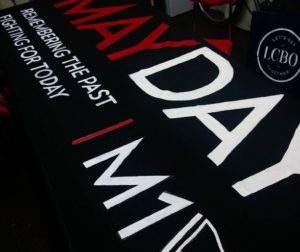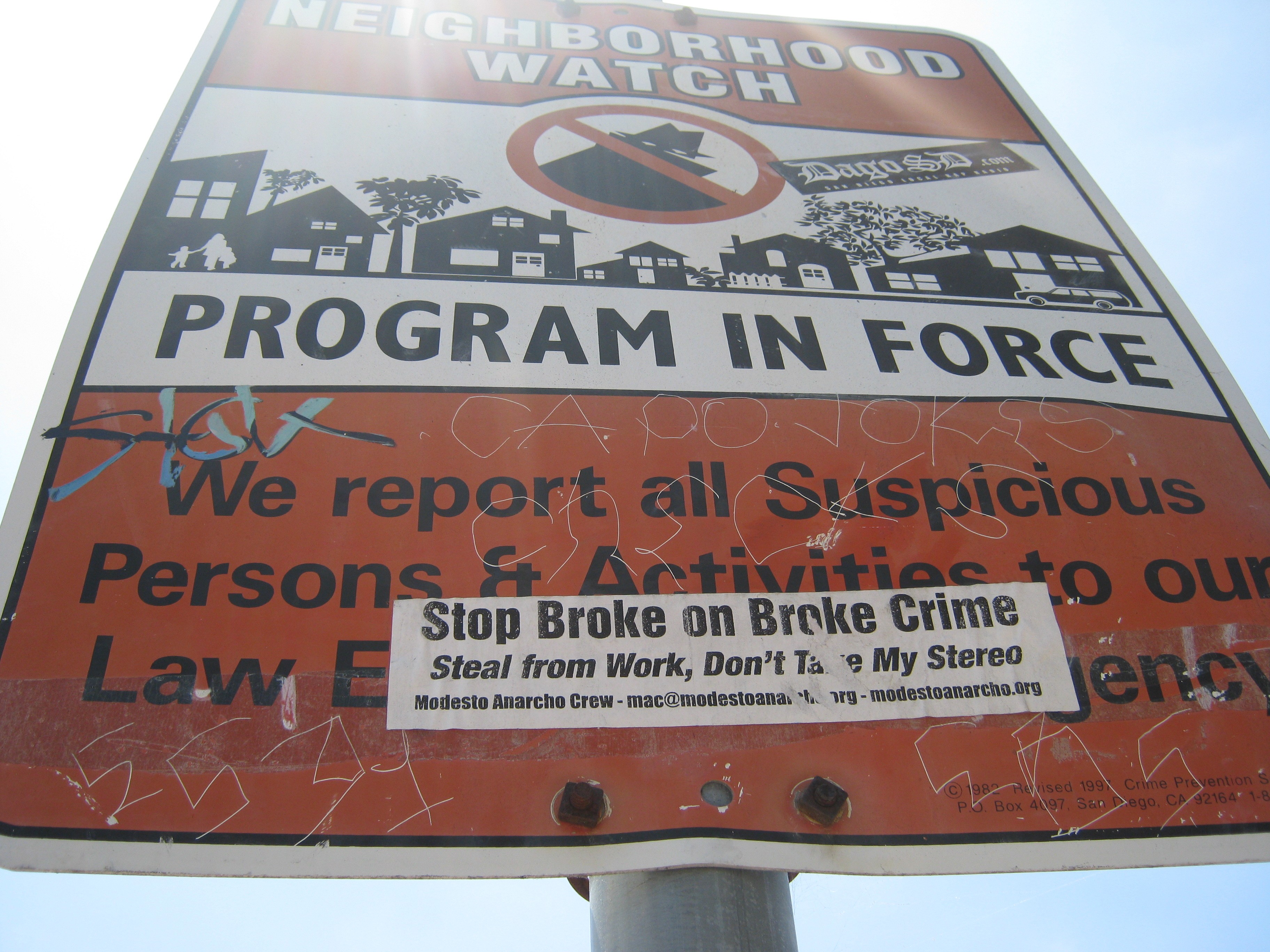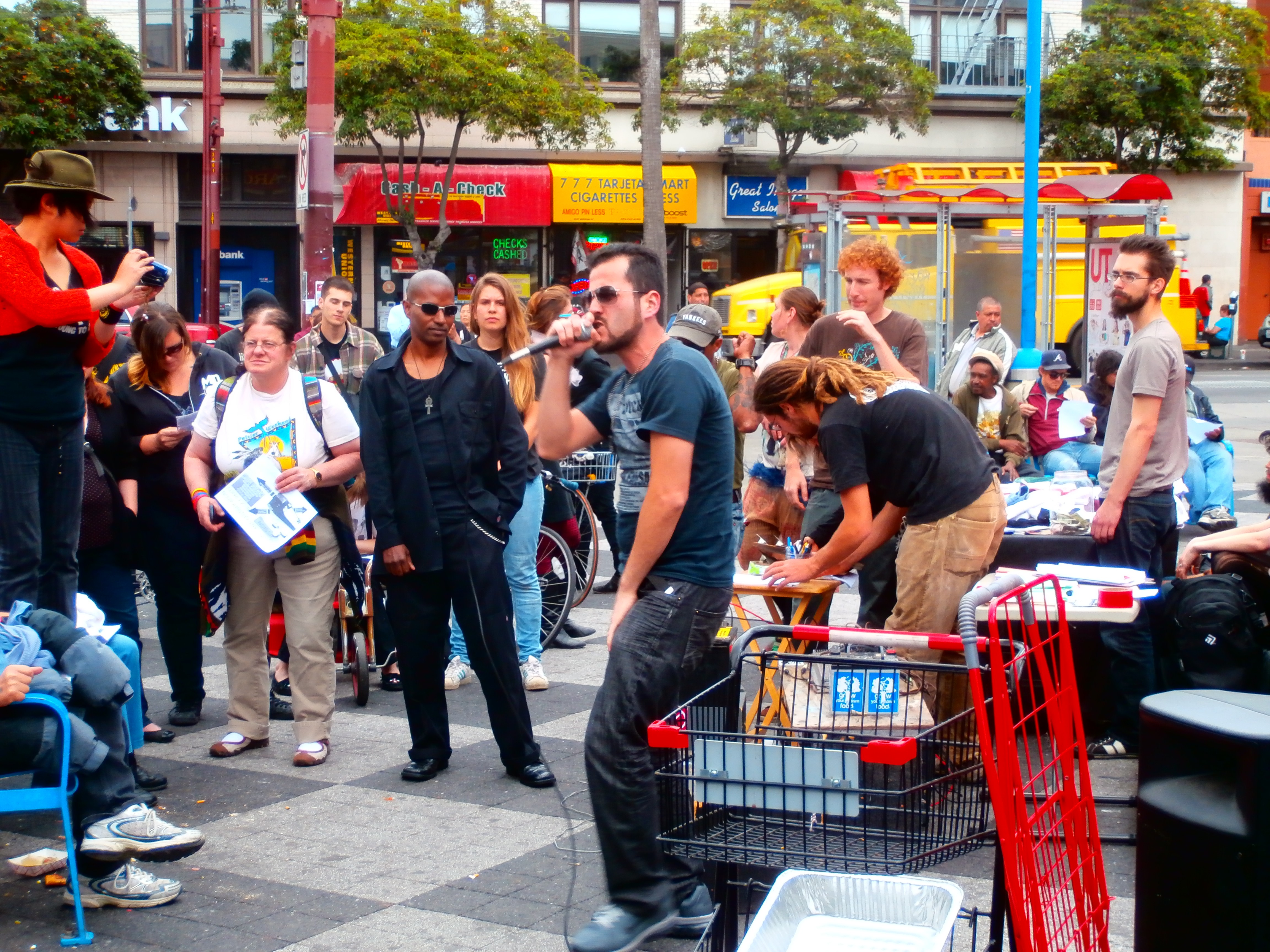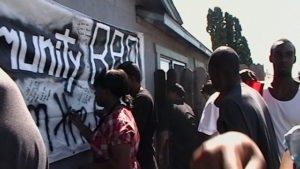Filed under: Analysis, Anarchist Movement, Featured

It’s going to be a hot summer.
Not only in the sense that it will be one of the hottest on record, but it will also be the first summer under the new Trump regime. The first under Sheriff Clarke’s Department of Homeland Security, the first under Jeff Session’s calls for a revamped drug war, mass incarceration, mass roundups, and deportations, as well as the ongoing economic, health, environmental, and social crisis.
Across so-called North America, anarchists are learning in a period of both intensifying social conflict and State repression that simply fighting in the streets on big days of action, in social eruptions and riots, and in clashes with the police and far-Right is–in itself–not enough. The crisis of the present moment demands of us not only a way of sustaining ourselves and our movement, but also offers the potential ability to create a crisis of State legitimacy through the creation of self-organized forms of power and by meeting our needs directly. This is not an argument to leave the streets–far from it–but we should recognize where we are lacking and that conflict takes many forms.
At the same time, as even taking part in marching in a black bloc is leading some to be faced with a 75-year sentence, there is a clear need to build a base of support for our movement within the wider population. More repression demands more resistance, but it also demands more support for that resistance as we put ourselves at greater risk. If the viral nature of the punching of Richard Spencer or a burning limo signals anything, it’s that while our enemies may have memes and billion-dollar news companies, we have actions and ideas, and these are things that can spread, grow, and lead to more action. Thus, while the Alt-Right attempts to use the media to create spectacles, we are pushing for actions that not only bring in the wider public, but establish a sense of resonance for our actions within that public.
As bad as things are, such crisis also gives us an opportunity to maneuver and build. The period we find ourselves in is both on the cusp of revolt at any moment and at the edge of the blade of repression. It is a time when we need to put in the hard work of building relationships and bringing new people into our movement; the success of this effort will also determine how well we do in the next round of struggles that are sure to break out in the coming period.
But in order to foster those relationships, anarchists also have to have several things. We need territory and space to operate from. This means the ability to organize ourselves and grow from a position of strength, and also a sense of place that we control, defend, and have a connection to. It also means coming into conflict with the forces that are at play in these areas and taking action against them. It means having a presence where we are; in letting people know that we are here, that they should join us, encouraging them to do so, and letting people know just what we are all about. Lastly, it means building a base of support among the broader population, which in turn feeds us information, funds, supplies as well as interacts with what we are doing.
Territory
There’s a reason that neo-Nazi groups such as Identity Evropa base a lot of their activity on putting up stickers and posters, graffiti artists pride themselves in the amount of tags they can get up, and Wal-mart installs video cameras that don’t even work; territory, and the ability to claim it and to control it, is important. But moreover, how you interact with that territory is even more essential.
Where are you basing your activity? Is it a neighborhood? A whole town? A bioregion? A street? A campus? What do you do to claim that territory? How do you interact with the other forces at play within it also fighting for control, be they anti-social elements, the police, business owners, homeowner associations, far-Right organizations, gangs, and whoever else?
For anarchists looking to entrench themselves in an area, there’s a lot we can do to create bonds, build relationships, and also grow our power, even if we lack the resources of an event space or even a large group. This includes holding outside events, organizing community projects such as turning vacant lots into parks, creating community infrastructure, organizing clean-up campaigns of discarded needles and trash, and starting programs to share resources. Whatever brings you and those around you closer and also elevates the standing of your crew and/or group in the eyes of the wider community is helpful. This will take on many forms.
Presence
Having a constant presence is important, especially as a means of claiming a sense of territory, both in terms of letting people know that a group exists and also in creating an atmosphere more conducive to your politics.
This can also take many forms. Stickers, wheatpasted posters, and graffiti slogans are some of the most common. So are easily placed banners, yard signs, and other public displays that give a neighborhood a more politicized feel.
Although the end of the age of copy scams has made mass producing magazines and newsletters harder (pool your money together to get a copy machine), developing a network of stores (liquor stores, corner stores, barbershops) that will allow you to leave flyers and magazines out for free is a good way to develop a face-to-face method of counterinformation. You can also take real estate and alternative weekly boxes and convert them into distribution centers of your own literature; repaint them and give them your own logo even.
The point is, it is important to have a public presence in the area that you are active and organizing within. Let people know you are there. Event flyers should be everywhere. When the police kill someone, their name should be up on the walls. Drop banners, put stickers and posters everywhere. Get your literature into the hands of every place that won’t throw it away.
Above all, normalize your activity, ideas, and actions to the public on a mass scale.
Coming Up Against Other Forces
As you start to claim and develop a sense of territory, you are going to come up against other forces. This includes both the police as well as the far-Right, “local bloggers” or journalists with an axe to grind, anti-social elements and gangs, as well as groups of people with money, such as business associations or City Hall itself.
The main thing is that incursions into your area shouldn’t be allowed to go without an answer. If you find an Alt-Right sticker up in your area, don’t just take it down, put up three of your own and make a flyer for the entire neighborhood, altering them that neo-Nazis are openly organizing outside of their door.
If the local groups with money behind them are pushing to gentrify the area, attack the homeless, or flood the neighborhood with surveillance cameras–respond. Hold meetings, hold BBQs, bring people together to talk about these issues. Take action to fight against these things happening. Find both individual and collective ways of fighting back. If the police are changing things up and harassing people to make way for a new development or push young people out of an area, organize a response.
Remember, our power ultimately lies in our ability to do things in a given area. If we don’t help push those actions into being, then ultimately are words are just hot air.
Space
When anarchists often think about space, we in general think about getting an infoshop, community center, or some sort of building where can bring people to.
While physical space such as buildings, infoshops, and community centers are important since they are a place for us to raise money, hold meetings, and organize events regardless of what the weather’s like outside, when we talk about space it goes beyond just one set place. It also means places where people are already gathering, where they talk, where they spend time outside, and where they might come into conflict with capital and the State.
This could mean public areas where people come together. It could mean public parks or other places where people go to relax while they aren’t working. It could mean spaces that people create t Hits
Select bulk actionApply 5,015 items First page«o have fun, such as DIY music venues, skating spots, or just public areas where they hang out with their friends.
It’s important for us to think about this space and how we can interject ourselves into it. Again, while we can get people to come to our events, film showings, and discussions, we also must think about pushing into public space in exciting ways where people are already at.
This means organizing BBQs and block parties; “Coffee Not Cops” programs outside of courthouses; graffiti and music festivals; giving out anti-ICE and Know Your Rights information at flea markets and swap meets; workshops, movies, and events outside; setting up literature tables outside of the DMV, on campus, and wherever people are already at. But moreover, it means understanding how space, and who controls it, is always a struggle, and thinking strategically about how we can choose to intervene in that struggle against the State and capital.
Building a Base that Supports You
Having a sense of territory that you are fighting for as well as a presence that establishes this sense is important, but, moveover, revolutionaries must strive to create a base of mass support for their actions and their ideas within human communities.
How we do this also directly relates to the kind of activity that we find ourselves most engaged in. While most Leftists and activists push for relationships with various non-profits or groups that “represent” various “communities” in order to give themselves a sense of credibility (that they intend to turn into political power), we instead should push for genuine relationships with people in the communities we seek to form alliances with. This means developing extensive networks based on friendship and family circles, as well as making connections with people involved in day-to-day life around us. If we are looking for groups to connect with, we should be looking for people who are self-organizing, pushing back against the social order, and have goals similar to ourselves.
Creating, formulating, and building on these relationships is power. The ability to have a variety of people across a broad area feeding your group information, support, funds, and supplies, as well as not selling you out to the police, are key if our movement is to grow.
This is also why anarchists need to think beyond just ourselves as anarchists but instead as the rank-and-file foot soldiers in broader community struggles. This is why as shit goes down, it is important to reach out to people and introduce yourselves, attempt to sit down and meet with people, and also explain to people what you and your group is doing and organizing, as well as what you stand for.
As these relationships grow over a wider territory, so too can your power to organize bigger and broader actions and campaigns, and push harder and deeper while also not watering down your politics.
Having a Capacity to Grow, Share Skills, and Bring in New People
All anarchist groups say that they reject formal leadership and hierarchy, but in reality many instead operate on an unspoken informal hierarchy based on social capital and cliques.
We should recognize these things as real and attempt to organize ourselves in a way that builds more robust movements, where leadership, skills, and resources are shared. In practice, the best ways to overcome these problems is to create both a culture and an organizational structure in which the group is actually organized horizontally, meeting and making decisions regularly, and people are sharing skills, resources, and the workload.
Creating such a structure also allows people to propose and bring up new projects to the group. In doing so, new people are able to take on organizing various programs and events, whereas other people are able to offer advice and support. Also, instead of a set of gatekeepers both making decisions and holding onto skills and abilities, we need ways of dispersing these things to everyone who wants to learn.
But above all, we need to create social structures in which new people are welcomed; a group that does not have this ability will last only as long as the people within it don’t get burned out and don’t move away. Let’s make sure that our spaces are open to not only all kinds of people, but people who are new to anarchist ideas. Be patient and help people grow.
Looking Towards the Future
We should also be thinking about how to expand beyond where we are now. Many cities and towns have small groups of 10-25 militants, while bigger cities have multiple circles involved in various projects. If we live in big cities, how can various circles talk to each other so we aren’t reproducing the wheel every year or in the face of a new struggle breaking out?
How can those with printing access help those without? How can those who have design skills help out those who don’t? How can people with knowledge about workplace and tenant organizing help people who need help at work or at home? How can we help provide self-defense at demonstrations to those who need it? The list goes on, but the point is, we need spaces in which people across a variety of anarchist, autonomous, and anti-authoritarian projects can come together and cross-pollinate. When we put our skills together, its power, so let’s do it!
Another task is reaching out to other formations. Our circles have a lot of group names: Earth First!, GDC, IWW, IWOC, Redneck Revolt, various antifa and anarchist crews, and beyond. While we may have different names and, at times, different focuses, we should think about how we can come together and support each other.
Lastly, we must build our movement beyond small, highly organized cadres of militants that can turn out large numbers of people for actions and fight in various struggles. What would it mean to have similar crews in the cities we live in–in all neighborhoods of the same city or town? What would it take to get there and what is stopping us from getting to that point?
It’s gonna be a hot summer. Let’s get busy.














